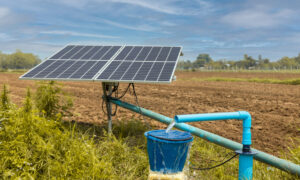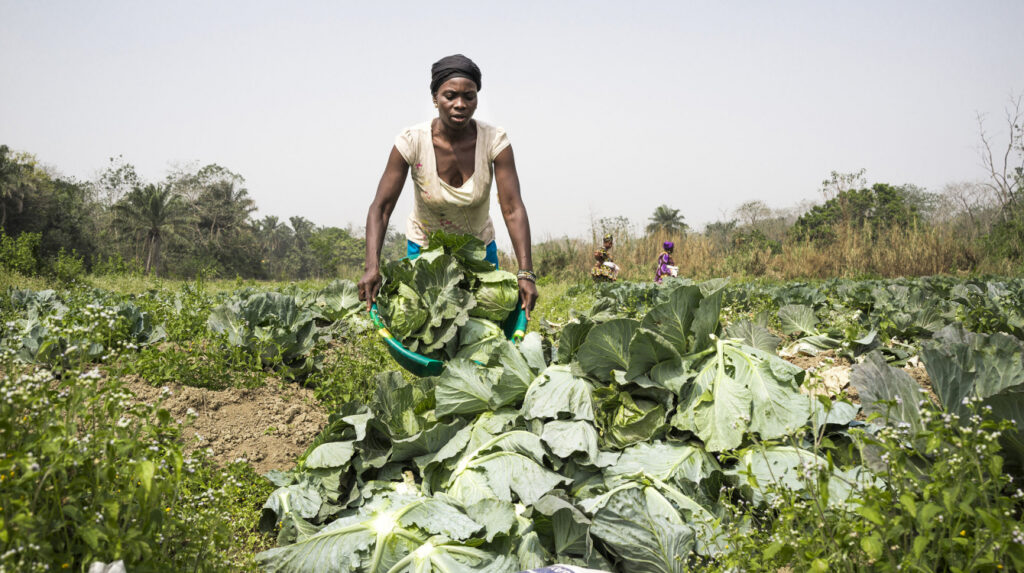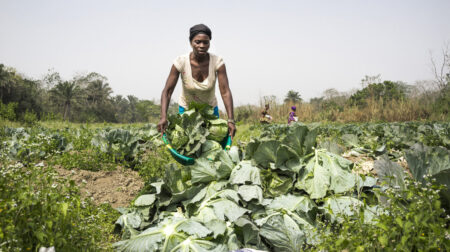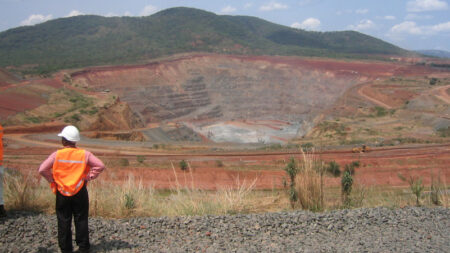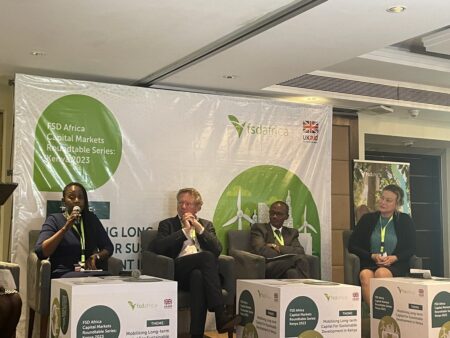- Climate change will push 132 million people into poverty by 2030.
- CARE has set a 2030 Goal to impact 25 million poor and marginalised people, particularly women and girls.
- According to CARE, as climate change pushes millions more into poverty, strengthening the resilience of the poorest and most marginalised people, especially women and girls, while building their capacities to adapt, should be the main agenda on all policy-making avenues.
Empowering Women in Agriculture to combat climate change
Climate change will push an additional 132 million people into poverty by 2030, most of these will be women. To help address the related challenge, the rights group CARE in Tanzania has launched a women’s empowerment program to combat the effects of climate change in agriculture.
Her Resilience, Our Planet, the six-year project targets women empowerment in the Southern Agricultural Growth Corridor of Tanzania (SAGCOT) clusters.
The project adopts a comprehensive approach to climate justice that integrates environmental sustainability, gender equality, and social inclusion.
According to CARE, the project lead, the initiative works towards building resilience, reducing vulnerabilities, and promoting adaptive capacities of communities while ensuring the protection of human rights and addressing systemic inequalities.
With funding from Canada, through Global Affairs Canada, CARE will execute the program in partnership with five other international and national organisations including WWF, SAGCOT, TGNP, Mtandao, Shahidi wa Maji, and the Conservation Farming Unit.
A whopping 20 million Canadian Dollars, and approximately 38 billion Tanzanian shillings, the project seeks to empower women and youth in the agriculture sector to combat the consequences of climate change across three regions of the country.
Coast Region, one of the three beneficiary regions, hosted the funding launch event earlier this week. Canadian Minister of International Development, Ahmed Hussein represented his country to deliver the Global Affairs Canada funding pledge.
In his address at the colorful ceremony attended by a cross-section of government officials and diplomats, the Canadian Minister pegged the project outreach to benefit over 175,000 smallholder women farmers across the three regions.
He said the women will be empowered to deal with the effects of climate change in agriculture.
“Women and youth are among the groups most affected by climate change; hence Canada has released the funds to enable them to adapt, mitigate, and transition to renewable energy,” he explained.
Present at the launch of the campaign was Deputy Minister of Agriculture, Mr. David Silinde, who expressed sincere gratitude to the government of Canada on behalf of the Tanzanian government.
He envisioned the grant and the project to support Tanzanian smallholder farmers at what he described as a ‘crucial juncture in time when climate change is making agriculture ever harder for smallholder farmers.’
He said the grant also serves as a reflection of the longstanding existing strong partnership between the two countries. The diplomat and politician seized the opportunity to cite Tanzania’s agricultural programs designed to support women and youth in agriculture including the bespoken Building Better Tomorrow (BBT) project.
“With our ongoing BBT project, we target to empower graduates, and our aim is to uplift women and youth in agriculture across the country,” he said.
Seconding the sentiments, Coast Region, Regional Commissioner, Abubakar Kunenge, emphasized the need to capitalize on the agriculture value chains as key to agribusinesses rather than focusing only on traditional farming approaches.
As Regional Commissioner, he named the beneficiary districts and regions to include Iringa, Kilolo, Wanging’ombe, Mufindi, and Mbarali districts, all in the SGCOT cluster list.
Climate change initiatives: CARE Tanzania projects
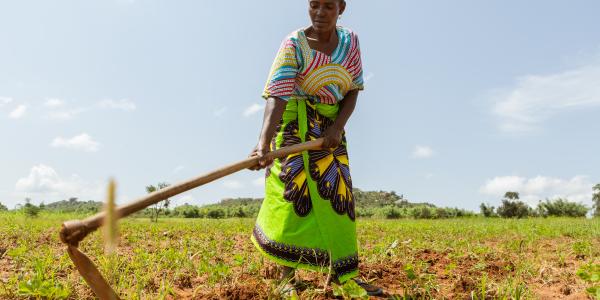
“Smallholder farmers are most vulnerable to climate change, which jeopardises their income, food, and nutritional security. Women and girls are particularly susceptible to adverse climate impacts,” the organ contends.
Women comprise the majority of Tanzania’s agricultural workforce and are responsible for securing food, water, and energy for household needs.
“However, patriarchal norms and traditions often dispossess women of rights, access, and control of land and agricultural resources, and exclude them from resource management and planning conversations.”
Over a period of more than 20 years, CARE Tanzania has launched numerous innovative programs focusing on natural resource management, climate change adaptation, and women’s empowerment in Tanzania.
Like the just launched Her Resilience, Our Planet, there is the CARE Tanzania’s Sustainable Agriculture and Land Management (SALAMA) whose sub-strategy provides goals and actions to reduce smallholder farmers’ vulnerabilities to climate change impacts.
CARE Tanzania works with medium and large Tanzanian NGOs to build the capacity of community-based organisations, and groups such as natural resources conservation groups, water user associations, smallholder farmer groups, and Village Saving and Loan Associations (VSLAs).
CARE has set a 2030 Goal to impact 25 million poor and marginalised people, particularly women and girls.
In this commitment, CARE intends to see that this target group has strengthened their resilience and adaptive capacities to the effects of climate change and are contributing to the energy transition.
“The scale and the urgency of the global climate crisis demands an augmented effort by CARE to promote climate justice to tackle the gendered consequences of climate change and the drivers causing it,” the organisation writes.
Because climate change exacerbates existing inequalities and has a disproportionate impact on women and girls because of the roles and tasks that they are assigned and the discrimination they face, there is need to give special attention to this vulnerable group.
“In the event of a disaster, the risk of death is higher among women and children than among men. However, women are also on the frontline when it comes to combating climate change, demanding justice and adapting to its consequences,” CARE writes.
Read Also: Tanzania smart agriculture initiatives combat climate change
It should be noted that climate change jeopardises the benefits and progress already made in addressing the injustice of poverty and gender inequalities in communities around the world and Tanzania is no exception.
Climate change also increases the need to respond to ever more urgent humanitarian needs and that is where international organisations like CARE come in.
It is only through communal and international efforts that countries and societies in Africa, especially the said vulnerable groups of women, girls and youth can hope to overcome poverty and social injustice.
According to CARE, as climate change pushes millions more into poverty, strengthening the resilience of the poorest and most marginalised people, especially women and girls, while building their capacities to adapt, should be the main agenda on all policy making avenues.
“ At the same time, countries most responsible for causing changes to our climate must commit to a stronger, zero-carbon future,” CARE demands.
“This transition must lead us to climate justice. For CARE, this is about a future in which the poorest and most marginalised people have improved their wellbeing significantly and can enjoy their human rights due to increased resilience to climate change, increased equality, and a limited rise in global temperature.”


